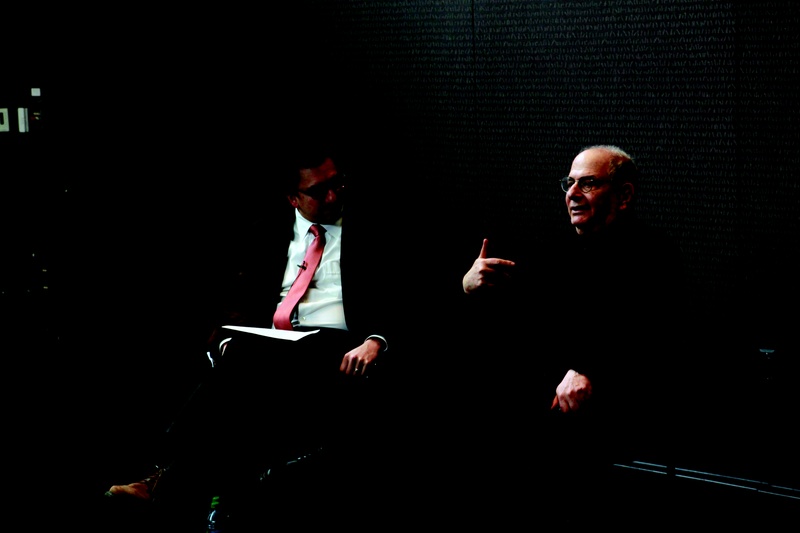American playwright and screenwriter Alfred F. Uhry is among a select group of writers to receive an Academy Award, a Pulitzer Prize, and a Tony (of which he has two). His 1987 play “Driving Miss Daisy” received widespread critical acclaim and was adapted into a 1989 film for which he wrote the screenplay. The film went on to garner four Academy Awards, including Best Picture and Best Adapted Screenplay. Uhry recently sat down with The Crimson to talk about the differences between writing for the stage and for the screen and the role of the arts in shaping political discussions.
THC: What was the process of [adapting “Driving Miss Daisy”] for the screen like?
AU: I had a very good director named Bruce Beresford, and he had done plays adapted into movies. So I wrote my script, and he said, “Well, you know what you've done is just retyped your play. And that's very nice, but that's not a movie…. In a movie, you don't have to say as much. You can get by with the look in somebody's eye or the way their mouth might move…. What I would love from you is pages of visual stuff. What it felt like to live in Atlanta then.” So, I wrote about National Geographic magazines piled up on the radiator, sunlight coming through Venetian blinds, what the food was like, what the weather was like…. The screenplay has its own rhythm, and I realized…that a writer is in control of a play, but a director is in control of a movie.
THC: How involved were you on set during the making of your movies?
AU: I was very involved with “Driving Miss Daisy.” I was lucky; I was there a lot, and they trusted me. Well, a reason was that I had written about a subject that I knew about—Atlanta in the ’40s and ’50s. And they would ask me questions like, "Would Miss Daisy eat fried chicken with her fingers?" and I said, ‘Well yeah,”.... I got [to Atlanta] and Bruce met me and he said, "I have to admit I asked your mother the same thing, and she said you were right." I mean, so they were checking. But on most movies I would rarely be there. I would turn in my script, and they didn't want me.
THC: Were there any actors or actresses you thought were particularly good at portraying the characters in the way that you had seen them?
AU: Yes. Morgan Freeman played the part in the play [“Driving Miss Daisy”] originally, when it was off-Broadway in a 72-seat theater. He was the original Hoke. He was only 40 years old, but it was remarkable because he played this old man, and he played it with dignity and humor and everything I would have wanted. The first day of rehearsal, he said, "I think you and I knew the same man." He managed—because he wasn't a movie star—to get the film, and he became a movie star. But that was luck; Morgan illuminated that movie.
THC: Were there ever points where your vision for a movie really conflicted with that of the director's?
Read more in Arts
Lowell Ringers Toll the BellsRecommended Articles
-
T., W., L., B., P., and SufferingI F you are in the business of judging people--and Heinrich Boll is--then you had better be precise. If you
-
Special NoticeFOR SALE. - The cutter "Daisy" by Fay, Southampton; 32 ft. over all; 8 1-2 ft. beam; lead keel; 8
-
Jeanroy Lectures MondayProfessor Alfred Jeanroy, Professor of Romance Languages and Literatures in the University of Paris and French Exchanges Professor at Harvard
-
 A.R.T.'s 'Gatz' Takes Classic Tale to Stage in Novel Adaptation
A.R.T.'s 'Gatz' Takes Classic Tale to Stage in Novel Adaptation -
 Interview with iPhone 4S' 'Siri'
Interview with iPhone 4S' 'Siri' -
 "Gatsby" Not So Great
"Gatsby" Not So Great














